Phenomenology: Husserl's Legacy
Interview by Richard Marshall.
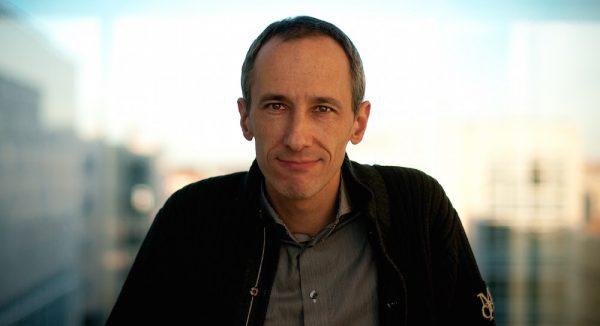
'I think phenomenologists reject various forms of reductionism, objectivism, and scientism. They insist on foregrounding the experiential perspective, and are more interested in descriptive adequacy than in explanatory mechanisms. Central to their efforts is an attempt to characterize and understand the pre-scientific lifeworld, which they consider the origin and ground of scientific theorizing.'
'One of the decisive questions that Husserl pursued for most of his life concerned the relation between the subjective and the objective. Already in his famous refutation of psychologism in Logical Investigations, Husserl stressed that even if ideal logical laws cannot be reduced to psychological processes it remains the case that objective truths are known in subjective acts of knowing.'
'If you go to developmental psychology, emotion research, dementia research, psychiatry etc. you can find empirical scientists talking about self-development, about the relation between the ecological self and the interpersonal self, about how shame is a self-involving emotion, and about how Alzheimer’s disease and schizophrenia in different ways affect and perhaps even destroy the self. In these fields, empirical scientists obviously find it both useful and relevant to operate with and refer to a self. I also think it is fairly obvious that what they have in mind when discussing the self, is not some unchanging soul-substance.'
Dan Zahaviis professor of philosophy and director of the Center for Subjectivity Research. He is mainly working on topics in the field of phenomenology, philosophy of mind, and cognitive science. He has written on the nature of selfhood, self-consciousness, intersubjectivity, social cognition, temporality, sociality, shame, empathy and collective intentionality. Here he discusses phenomenology, Husserl, his facticity and intersubjectivity, his relationship to Heidegger, Sartre, Merleau-Ponty, the self, why the anonymity and transparency objections fail, the unity of the self, temporality and selfhood, the self and others, empathy and shame, attitudes towards phenomenology, and why phenomenology is on the rise again.

[Pics: Bob Dylan]
3:AM:What made you become a philosopher?
Dan Zahavi:I met philosophy early. I read much as a child, and occasionally came across references to philosophy. I didn’t understand what it meant, but I was curious, and when I was 12 years old, I asked my mother to buy me a copy of Will Durant’s The Story of Philosophy: The Lives and Opinions of the Greater Philosophers. I can’t claim to have understood much at that age, but Durant’s account of Plato was still so inspiring that I there and then decided that I wanted to study philosophy. It is a decision I have never had cause to regret.
Initially, I was drawn to the history of philosophy and delved into Aristotle, Thomas Aquinas, Kant, and Hegel. At some point, however, it started to dawn on me that Husserlian phenomenology might in some way be seen as a kind of synthesis between Aristotelianism and Kantianism. I ended up writing my MA on Husserl, and then also my PhD, and then the career track was kind of fixed.
One important subsequent development, however, was the moment I started to collaborate with researchers outside of philosophy. About 20 years ago, I met Josef Parnas, a professor in psychiatry, who subsequently became a close collaborator of mine. I have since come to appreciate not only collaborative work, but also work where philosophy engages with other disciplines. Not only because we philosophers can learn so much from other disciplines, but also because it is both rewarding and satisfying to see how philosophical considerations might have an impact on and be beneficial for discussions outside of philosophy. In the intervening years, I have co-authored articles with neuroscientists, geneticists, psychiatrists, clinical psychologists, developmental psychologists, anthropologists, Buddhist scholars, and nurses. By now, I have probably grown a bit impatient with philosophical analyses and distinctions that entirely lack relevance for and impact on empirical science.
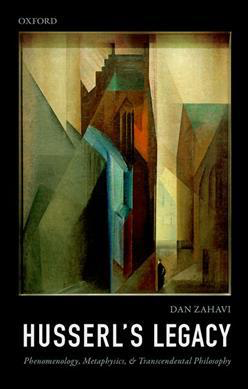
3:AM:Phenomenologyis one of the major strands of post Kantian philosophy. But it isn’t easy to pin down exactly what the name captures. Can you first sketch for us what you think is its core and whether there actually is a core – something some philosophers have disputed haven’t they?
DZ:Yes, but then again, think of recent efforts to provide a clear definition of analytic philosophy. This has not exactly proven easy either. Now, admittedly there is a lot of heterogeneity in phenomenology. Many of the principal figures in the movement kept refining and developing their own views over the years. Often their thinking underwent so decisive transformations that it has become customary to differentiate early and later stages in their philosophy, and to distinguish, say, the early Husserl from the later Husserl, or Heidegger before and after the turn. Furthermore, as Ricoeur once put it, the history of phenomenology is the history of heresies; each generation of post-Husserlian phenomenologists took inspiration from the work of the founding figures, but kept transforming and modifying the methodology, scope, and aim of the phenomenological enterprise. But although phenomenology has in many ways developed as a movement with many branches; although all post-Husserlian phenomenologists have distanced themselves from various aspects of Husserl’s original program, and although it would be an exaggeration to claim that phenomenology is a philosophical system with a clearly delineated body of doctrines, one should in my view not overlook the overarching concerns and common themes that have united and continue to unite its proponents. My own approach over the years has been characterized by an attempt to focus on the similarities and commonalities. If phenomenology is to have a future, I think it is urgent to articulate and develop what is common to the phenomenological enterprise instead of remaining stuck in the kind of sectarian trench warfare that has regrettably plagued its history. Too much energy has been devoted to a highlighting of internal differences, rather than common strengths. It is regrettable, but perhaps not overly surprising, that the criticism of phenomenology that we find in figures like Smart, Dennett or Metzinger is more than matched by the ridicule expressed by some phenomenologists vis-à-vis other phenomenologists.
So what is the core? Very briefly put, I think phenomenologists reject various forms of reductionism, objectivism, and scientism. They insist on foregrounding the experiential perspective, and are more interested in descriptive adequacy than in explanatory mechanisms. Central to their efforts is an attempt to characterize and understand the pre-scientific lifeworld, which they consider the origin and ground of scientific theorizing. Central dimensions targeted by phenomenological analysis include intentionality, temporality, embodiment, and sociality. Phenomenologists consider the subject an embodied and socially and culturally embedded being-in-the-world, and argue that we need to factor in the role played by embodied, perceiving, thinking and feeling agents if we want to understand the world we are living in.
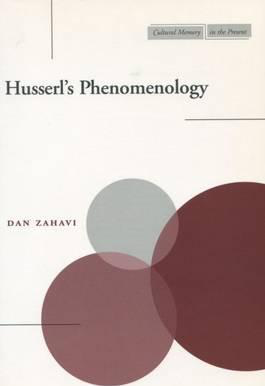
3:AM:Husserl is a founding father isn’t he? What is ultimately at stake in his analyses? Is this project a psychological one or is it transcendental – a question that according to Beiser was a fundamental issue for the neo-Kantians like Rickert his predecessor at Freiburg throughout the nineteenth century as they tried to figure out what Kant’s transcendental idealism was about? If it is transcendental are there metaphysical commitments or discoveries that emerge from Husserl’s project?
DZ:Some have argued that Husserlwas primarily a student of Brentano, and that Brentano must be seen as the founder of phenomenology. This is not my view, however. I think there are important differences between Husserl and Brentano, and that much of what is distinctive about phenomenology cannot be found in the work of Brentano. It is not coincidental that the majority of post-Husserlian phenomenologists was influenced by and reacted to Husserl’s work, and not to Brentano’s.
What is then at stake in Husserl’s analyses? Is he offering refined psychological descriptions of consciousness – as both critics and sympathizers have occasionally argued? I do not think so. One of the decisive questions that Husserl pursued for most of his life concerned the relation between the subjective and the objective. Already in his famous refutation of psychologism in Logical Investigations, Husserl stressed that even if ideal logical laws cannot be reduced to psychological processes it remains the case that objective truths are known in subjective acts of knowing. And as he then insisted, it is this relation between the objective and the subjective that must be investigated and clarified, if we wish to attain a proper understanding of the possibility of knowledge. As Husserl’s thinking progressed, he came to argue that it is philosophically unacceptable simply to assume the ready-made character of the objective world. Rather the philosophical task is precisely one of elucidating how something like objectivity is possible in the first place. How does the world come to acquire its character as true and objective? In dealing with the issues, Husserl went on to argue that mind and world must be investigated in correlation, and that they cannot be studied or understood in isolation from each other. This is not a psychological or introspectionist claim, it is a philosophical or more specifically a transcendental philosophical claim.
Does such a view have any metaphysical implications? On my interpretation of Husserl’s phenomenology, a dominant reading is simply mistaken. According to that dominant reading, Husserl was a metaphysical realist in Logical Investigations, whereas he after his turn to transcendental philosophy decided to bracket metaphysical questions. As I have argued, however, both in articles from the 1990s, and also in my most recent book Husserl’s Legacy, Husserl’s so-called bracketing of metaphysical questions is precisely to be found in Logical Investigations. As long as Husserl was still promoting a strictly descriptive type of phenomenology, he remained metaphysically neutral. After his turn to transcendental philosophy, however, some metaphysical questions, in particular questions concerning whether or not reality is mind-dependent, became admissible and relevant, and the aim of Husserl’s mature phenomenology was precisely to address these questions, and not to ignore them. Rather than defining objective reality in terms of an inaccessible and ungraspable beyond, Husserl argued that the right place to locate objectivity is in, rather than beyond, the world of experience. Rather than defining objective reality as what is there in itself, Husserl ultimately sought to define it in relation to a community of minds. For him, there is no other meaningful true reality than the one we agree upon at the end of inquiry.
Had Husserl really been as reluctant to engage with metaphysical questions as some interpreters have claimed, it is hard to understand how he could so adamantly reject various metaphysical positions, including phenomenalism and metaphysical realism. In rejecting the latter positions, I think Husserl resembles Putnam (at least the Putnam of The many faces of realism), though there are obviously also important differences.
3:AM:Why do you argue that facticity and intersubjectivity are fundamentally important to his transcendental idealism? These things seem much more about the world than consciousness and this might strike some as being rather surprising commitments for a phenomenologist. Does understanding this give us a clue as to how we are to understand his repeated claim that subjectivity is world constituting?
DZ:Yes, I think getting intersubjectivity and facticity into the picture is urgent if we want to understand not only Husserl’s position, but also that of other phenomenologists. Again what has to be constantly emphasized is that phenomenology in the classical sense is not at all simply about studying the phenomenality of consciousness. The fact that analytic philosophers has started to use the term phenomenology as a label for that latter study (or even simply as another label for the phenomenal character of consciousness) is quite misleading and certainly bound to cause a lot of confusion.
In my dissertation from 1994, I argued that Husserl’s main reason for dwelling so much on the topic of intersubjectivity was transcendentally motivated, and that his phenomenology should ultimately be appreciated as an intersubjective transformation of transcendental philosophy. In other words, rather than being interested in itemizing the basic building blocks of reality, Husserl was concerned with the transcendental philosophical question of what it means for something to be real, and how we can experience it as such. He defended the view that an answer to these questions would have to involve the role played by the intersubjective community. Some interpreters have argued that since Husserl was a phenomenalist (and reductive idealist) his theory of intersubjectivity was doomed to failure since there was no way he could escape solipsism. My alternative approach was to argue that since Husserl assigns a fundamental transcendental role to intersubjectivity, there is no way he could have been a phenomenalist (and reductive idealist). Incidentally, I also think a proper interpretation of his theory of intentionality clearly invalidates such a phenomenalist interpretation.
The moment intersubjectivity is assigned an important role, the very conception of transcendental philosophy was bound to change. Husserl’s understanding of the transcendental consequently differs from Kant’s. On Husserl’s conception of transcendental philosophy, embodiment, historicity and cultural diversity get to play a significant role. To that extent, and this is also something I argue for in Husserl’s Legacy, Husserl is very much a philosopher of the 20th century, and has more in common with Merleau-Ponty and Wittgenstein than with Searle or a psychologist like Titchener.
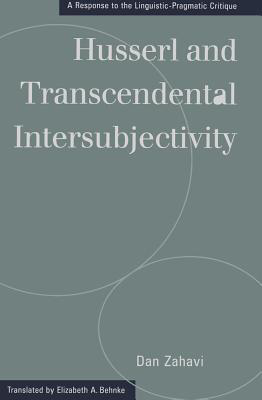
3:AM:How do Husserl’s approaches to intersubjectivity compare and contrast with Heidegger’s, Sartre’s and Merleau-Ponty’s? Are they vastly different or are their core commitments shared by them all?
DZ:There are both differences and similarities. However, I think some interpreters have overstated the difference between Husserl on the one hand and the other three phenomenologists on the other. According to a widespread narrative, Husserl only started to realize the challenge of intersubjectivity fairly late. His commitment to methodological solipsism, his trenchant idealism, and his disregard of the role of embodiment, however, seriously impeded his efforts and ultimately meant that his attempt to develop a phenomenology of intersubjectivity failed. By contrast, later phenomenologists such as Heidegger, Sartre, and Merleau-Ponty all realized the significance and importance of intersubjectivity from early on. As might already be clear, I consider this a misinterpretation.
Were one to pick an outsider in that quartet, I would pick Heidegger. One commonality between Husserl, Sartre and Merleau-Ponty is that they all emphasize the fundamentally embodied character of intersubjectivity. This is a difference to Heidegger, who has little to say about embodiment. Another difference is that all three are keenly interested in dyadic face-to-face relations (Husserl and Sartre admittedly more than Merleau-Ponty), whereas Heidegger again tends to dismiss the significance of such dyadic relations. What we find in Heidegger by contrast is not only an insistence on the formative character of tradition and historicity, but also an emphasis on the extent to which our being-in-the-world is as such characterized by a being-with-others regardless of whether there de facto are others present or not. The other phenomenologists are to various degrees prepared to accept this claim, but they would still insist on the importance of the concrete encounter with the other and claim that this encounter fundamentally affects and transforms our being-in-the-world.
3:AM:What is revealed if we confront phenomenological approaches to intersubjectivity with language-pragmatical alternatives of Apel and Heidegger?
DZ:I think the main difference concerns the latter’s narrow focus on linguistic communication. To put it differently, Apel and Habermas’ approach to intersubjectivity is very language-oriented, is very influenced by Wittgenstein. None of the phenomenologists, not even Husserl, would dispute that language is important for intersubjectivity and that new forms of intersubjectivity are possible as a result of language. For one, the latter allows for a sharing over time, for a preservation of tradition, and for an accumulation of knowledge, that wouldn’t otherwise be possible. But all of the phenomenologists would also insist that intersubjectivity doesn’t start with language, but that there are pre-linguistic forms of intersubjectivity, forms that are linked to and made possible by our embodied expressive engagement in the world. I think contemporary developmental psychology have shown the phenomenologists to be right about this. It is noteworthy that Habermas’ successor in Frankfurt, Axel Honneth, has been much more open to findings from developmental psychology, and also more receptive to ideas from phenomenology.
Around 1995 or 1996, after having written my dissertation which only engaged with intersubjectivity from a philosophical point of view, I came across a book by Daniel Stern entitled The Interpersonal World of the Infant. It was something of a revelation for me. Stern who was a psychoanalyst and developmental psychologists was approaching the topic of intersubjectivity in a way very congenial to my own, but from a developmental point of view. It was a wake-up call for me regarding the possibility of engaging fruitfully as a philosopher with empirical science.
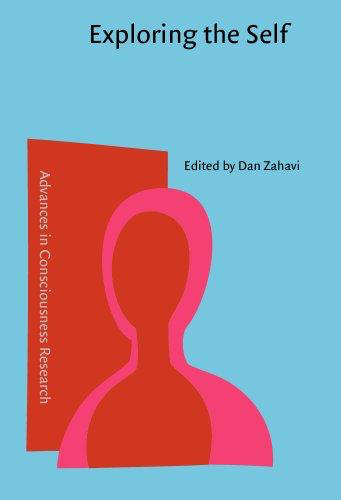
3:AM:You’ve considered how best we can understand the selffrom the phenomenological perspective and this means looking at realism vs anti-realism disputes. You think there’s a mismatch between what some philosophers and what some empirical scientists are talking about when they discuss the self. Can you say what the issues are here, what the mismatch is and whether your approach commits you to a realist or anti-realist conception of the self?
DZ:Some philosophers have denied the reality of the self with the argument that the self must be understood as an unchanging soul-substance and that no such entity exists. If you go to developmental psychology, emotion research, dementia research, psychiatry etc. you can find empirical scientists talking about self-development, about the relation between the ecological self and the interpersonal self, about how shame is a self-involving emotion, and about how Alzheimer’s disease and schizophrenia in different ways affect and perhaps even destroy the self. In these fields, empirical scientists obviously find it both useful and relevant to operate with and refer to a self. I also think it is fairly obvious that what they have in mind when discussing the self, is not some unchanging soul-substance. So there is clearly some kind of mismatch when it comes to the definitions. To be a bit blunt, I think the proposal that selfhood must be defined as an unchanging principle of identity, as something over and beyond our experiential life, is a red herring; an obvious way to stack the cards against realism about the self. I don’t think such a definition is the default definition of self, and I certainly don’t think it accords well with a lot of work on the self found in 19th and 20th century philosophy. This is, however, not to say that all is well in empirical science either. Many of the researchers who talk about the self, who seek, say, to identify its neural correlate, do not spend much time defining what they are investigating. I consequently don’t think philosophical reflections on these matters have become superfluous as a result of the increasing empirical interest in the self. Rather, the way forward lies in increasing interdisciplinary collaborations.
As for my own view, I am a realist about the self. I think it is real, as real as consciousness. I also think that selfhood is so complex a topic that several complementary models are required if we are to get a handle on it. So on my view, there are actually different levels or dimensions of selfhood, ranging from a very basic experiential level that I equate with the subjectivity of experience, to a far more sophisticated normatively extended level, that I take to be constitutively dependent upon both language and interpersonal interaction.
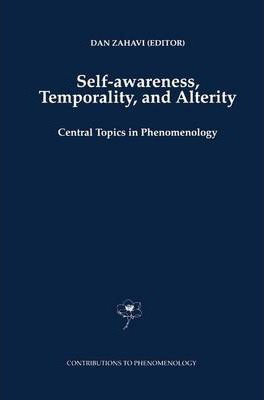
3:AM:Some will argue that experience per se doesn’t entail subjectivity, first-person givenness and for-me-ness, and they may also say that one is never directly acquainted with our own experience. You disagree with them don’t you? Can you say why the ‘anonymity objection’ and the ‘transparency objection’ both fail?
DZ:Yes, I disagree with these views. I don’t think they capture the nature of experience. In some cases, there are substantial disagreements, in other cases, I think the disagreement is more terminological, in the sense that the critics might be operating with more inflationary conceptions of subjectivity and first-personal givenness than I do. But let us take a look at the two objections you mention: The transparency objection and the anonymity objection. According to the transparency objection, experiences make us aware of external objects, but are not themselves something of which we are aware. They are not themselves experientially present. Indeed, we are as little aware of the experiences, as we are of transparent sheets of glass. We ‘look’ right through them at the world outside. One difficulty with this view is that it is unclear whether it really is able to discriminate conscious and non-conscious representational states, just as it is hard to see how it could possible preserve anything like first-person authority. Indeed, according to Dretske, who is one of the proponents of the view, we have no direct access to the fact that we are conscious rather than non-conscious. For all I know, I might in fact be a zombie. I don’t find this view very attractive, to put it mildly, and would consider it a last resort.
According to the anonymity objection, by contrast, experiences are in fact experientially given. So consciousness is itself manifest, it is not a hidden phenomenon, something merely inferred. However, the experiences in question are unowned. Not necessarily in the metaphysical sense that they can occur without a subject of experience, but in the sense that the ownership is not experientially present in any way. If a perception of a bottle occurs, then a correct description of that experience will involve a reference to the object (the bottle) and to the intentional state (the perception), but not to any owner of the experience. When experiences occur, they simply take place, and that is all. They are not felt or sensed as my experiences. To say that I am perceiving the bottle, or that the bottle is experienced by me, is already to say too much; it is a post-hoc fabrication. Let me present two worries I have with this view. First of all, few people are inclined to deny, upon reflection, that their experiences are their own. But what is the basis of such a reflective self-ascription? If I say ‘I have a headache’ does such a first-person report then entirely lack experiential evidence? Is it in no way answerable to experiential facts? If one bites the bullet on this, it is again hard to see how one can preserve and accommodate something like first-person authority. Secondly, even if one wants to deny that our pre-reflective experiences are characterized by a specific phenomenal quality of mineness (something I incidentally also deny), I don’t think one should deny that pre-reflective experiences are characterized by subjectivity in the sense that they do not manifest themselves entirely in the public domain. Rather, the experiences are manifest to the subject undergoing them in ways that are quite unlike how they are available to everybody else. But if this is granted, one has also granted that experiences are intrinsically first-personal – at least according to my use of that term.
These issues continue to remain contested, however. One issue of controversy concerns what might be called the universality question. If it is the case that our experiences are characterized by for-me-ness, is it then something that holds with necessity, such that it characterizes all experiences, however primitive or disordered they might be? Or might there be relevant exceptions to be found in the field of psychopathology, neuropathology and developmental psychology or among long term meditators, expert athletes or users of certain psychoactive substances.

3:AM:Is the unified selfan illusory reification, as some Buddhist philosophies would argue?
DZ:It is a complicated discussion, but to make headway, I would suggest that we ought to distinguish a number of different questions. Consider, for instance, the difference between synchronic unity, short-term diachronic unity and long-term diachronic unity. It is one thing to deny that there is an unbroken unified self from birth to death, and something quite different to deny that the first ten seconds of Beethoven’s 5th Symphony can be experienced by the same subject, and this again is different from denying that a headache and a taste of coffee can be experienced simultaneously by one and the same subject. Sometimes, I think that if there is any reification going on, it is one made by those who mistakenly assume that the self must be a persisting thing, and who then deny the existence of such a thing.
Another point worth considering is the following. Let us for the sake of the argument assume that long-term diachronic self-identity is partially, or perhaps even fully, a matter of construction. Would that then justify the claim that long-term diachronic self-identity is illusory? That hardly follows, since not all constructions or composites are illusory. To claim that they are is so radical a position that it is difficult to take seriously. It would, for instance, entail that World War II, the Syrian civil war, and the climate crisis are all unreal.
3:AM:How do you understand the relationship between temporality and selfhood, and if you think there is some degree of diachronic unity just how temporally extended is it? And does this commit you to a kind of Cartesianism?
DZ:I think we can safely leave Descartes out of this. There are plenty of positions affirming the diachronic unity of the self without being committed to any form of Cartesianism. Having said that, let me add that I do think there is a very deep connection between selfhood and temporality, but also that these are perplexing and difficult issues. Briefly put my view would be that you cannot have synchronic experiential unity without a minimal diachronic unity as well. Our experiential life is inherently temporal, so all our experiences are at the very least minimally diachronically extended. I would also argue that temporal dispersed self-awareness (i.e., episodic memory) provides prima facie evidence for the temporal persistence of the self. But this still leaves plenty of questions unanswered. What about false memories? What about those periods of my life that I can no longer remember? Are they then no longer proper parts of my experiential life? And if they are, what is it then that ensures the continuing persistence of the self? I will not pretend to have answers to all these questions, but I would insist that the answers will vary depending on what dimension of self we are talking about. It is not obvious that the persistency conditions of the minimal self equal those of the normatively extended self.
Let me merely add that whereas much of the recent discussion of personal identity has taken place within a Lockean and neo-Lockean framework of personal identity, where the focus has precisely been on the link between memory and diachronic persistence, there are other ways of conceiving of the relation between selfhood and temporality. Indeed, authors such as Heidegger and Ricoeur both argue that the link between selfhood and temporality is even more intimate than realized by Locke, and not adequately captured by means of categories such as continuity or duration. Rather, on their view, to be a self is to appropriate the past, and to project oneself into the future, in a way that ultimately makes the temporality of the self quite unlike that of any enduring object.
3:AM:How do we get to know and understand others? Is empathy a crucial factor and how are we to understand what this is? Is there enough agreement between leading phenomenologists about empathy to have a phenomenological view on empathy?
DZ:There is no simple answer to your first question. Indeed, I think a recurrent mistake in part of the literature is to suggest that interpersonal understanding is all of the same kind. In my view, we need to appreciate that interpersonal understanding and social cognition take many different forms and can vary along a number of different parameters. Just consider the kind of other-understanding you are engaged in when you on your way to class wonder whether the students will be able to appreciate your take on Wittgenstein’s Tractatus and then compare that to the kind of other-understanding you obtain when one of your students after class inform you, with tears in her eyes, that her mother has just died. Are we in both cases dealing with the same mechanism of, say, inferential mindreading or imaginative perspective-taking? I doubt it. I think there are crucial differences and that we in the face-to-face encounter can enjoy a very different perceptually based form of other-understanding.
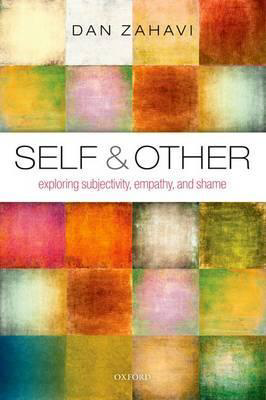
What does this then have to do with empathy? Well, there is plenty of confusion in that debate as well. Part of this confusion is due to the fact that people are operating with very different definitions of empathy, and so end up speaking at cross purposes when they either celebrate or criticize it. People disagree about whether empathy is a form of affective sharing, other-oriented perspective taking, mind-reading, etc., and about whether or not it is a moral emotion. My proposal has been to go back to some of the earliest discussions of empathy, namely the ones to be found in phenomenologists like Stein, Husserl, and Scheler. What we find in them is a take on empathy which differs rather markedly from the contemporary debate. For them, empathy is not to be conflated with emotional contagion, imaginative perspective taking, sympathy, or compassion. Rather, they consider empathy a basic, perceptually based form of other-understanding, one that other more complex and indirect forms of interpersonal understanding presuppose and rely on. They understand empathy as a particular experiential encounter with another’s embodied and embedded experiences, and argue that one can obtain an acquaintance with the other’s experiential life in the empathic face-to-face encounter that has a directness and immediacy to it that is not shared by whatever beliefs you might have about the other in his or her absence. Finally, and this is particularly highlighted by Husserl and Stein, to empathically grasp, say, another’s joy is not to be joyful oneself, but to recognize the joy as belonging to the other. On this account, empathic understanding is not about taking over and making the other’s experience one’s own. It is about maintaining and preserving the difference between self and other.
Despite minor internal disagreements, this is a view that many of the phenomenologists would subscribe to. The exception, however, is once again Heidegger, who is known for his criticism of empathy and for his rejection of the attempt to understand fundamental forms of sociality through an analysis of dyadic relations.
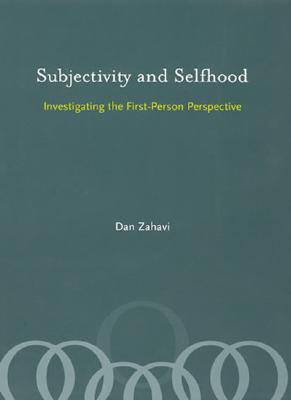
3:AM:Why is an examination of shame important in understanding the self?
DZ:My own interest in shame grew out of my continuing engagement with the nature of selfhood and intersubjectivity and their interrelation. What somewhat belatedly dawned on me was that there is an important emotional side to that relation, and that the study of particular emotions can offer important insights. More specifically, I have argued that shame exemplifies an other-mediated form of self-consciousness. Shame is a self-directed emotion. When we feel ashamed, our own identity is at stake. Shame is the painful awareness of personal flaws and deficiencies; flaws that we take to be defining of who we are (something we might obviously be mistaken about). But how do we get to obtain such a critical perspective on ourselves? The literature on shame is divided on the question of the role of the other. Is an actual audience necessary for the feeling of shame, or is shame rather something that one can feel even when alone?
My view is that, yes, shame can be felt even when one is alone, but I have also argued that there are certain preconditions that must be met for such a reflective form of shame to be possible. I think it is a latecomer, and that a more paradigmatic and more fundamental form of shame is the one we feel when confronted with the critical gaze of others, when we experience their disapproval, contempt and lack of recognition. I think the experience of such interpersonal shame and the subsequent internalization of the critical perspective of others is what enables the kind of critical self-evaluation that we find in intrapersonal, reflective, shame. What then does shame tell us about ourselves? For one, shame testifies to our exposure, vulnerability, and visibility. I think it points to the embodied and normatively embedded nature of the self. To that extent, I also think the shamed self is a more complex (and complicated) self than the minimalist experiential self discussed above.
3:AM:There seems to be stuff in the phenomenologist’sapproach to consciousness and the mind that overlaps or prefigures ideas in current analytic philosophy’s approaches – such as the higher-order theory of consciousness for example. Taking that as an example, could you say what the phenomenologist approach offers the analytic philosophers, and do you think that if the likes of Sartre, Husserl and Heidegger (and their precursor Brentano) were heeded more, would we avoid the ‘reinvention of the wheel’ situation that is developing in the ‘consciousness boom’?
DZ:Well, actually I think that what we find in the work of the phenomenologists is a distinct (and attractive) alternative to higher-order theories of consciousness. But generally, I do of course agree. I do think there are lot of insights to be found in classical phenomenology that ought to be taken up by and contemporary analytic philosophy of mind. This is an argument I have been making for quite a number of years by now, and I do think the situation has changed by now. Within analytic philosophy, there is currently much more receptivity to ideas coming from phenomenology, be it ideas pertaining to the role and structure of embodiment, self-awareness, phenomenality, intentionality, temporality, etc., than was the case 20 years ago. And that is as it should be. I fail to see why anybody would want to consider ignorance of the philosophical tradition a virtue. Many of the problems and questions we are currently concerned with are not new problems or questions. They have been discussed before. And if we want to make progress, we ought to consider those earlier discussions. Otherwise, we simply risk either committing the same mistakes again, or spending too much effort rediscovering important insights.
3:AM:How do you explain the antagonism towards phenomenology by the likes of John Searle and Thomas Metzinger and on the other side the over-the-top praise for it by the likes of Jean-Luc Marion? Why is there this partisanship in an area of study, the philosophy of mind, so many traditions and disciplines are interested in. You’d have thought there’d have been a lot of collaboration. Is this just a blatant case of the Analytic/Continental divide?
DZ:I don’t think it is too surprising that Jean-Luc Marion praises phenomenology given that he is sometimes considered part of that tradition. He is certainly heavily influenced by Heidegger. As for the criticism of Metzinger and Searle, I published an article a few years ago entitled Analytic and Continental Philosophy: From duality through plurality to (some kind of) unity where I made the claim that the intensity of the ridicule is often correlated with one’s lack of knowledge about the target one is criticizing. Consider Jack Smart who once opined that phenomenological philosophy seemed such sheer bosh that he couldn’t be bothered reading it, or Zabala & Davis who have argued that analytic philosophy is anal in the Freudian sense of the term. The list could be continued, there is plenty of nonsense around.
Whatever one might say about Searle and Metzinger, I don’t think one can claim that either of them is deeply familiar with the phenomenological tradition. Fortunately, however, I think things are changing and that the distinction between continental philosophy and analytic philosophy is becoming increasingly obsolete. Not because there are no differences, but because people are realizing that there are plenty of differences internal to both of these alleged monoliths; differences that are even more pronounced than the analytic/continental divide. In any case, an increasing number of philosophers are now active bridge-builders. They work in and with different traditions and are actively pursuing philosophical insights wherever they are to be found.
3:AM:Is it the revival of the ‘hard problem of consciousness’ by David Chalmers that has led to the revival of interest in the phenomenologists approach? Do you think we’re going to be seeing a new golden age of phenomenology in the field of the cognitive sciences and phil of mind?
DZ:Why has there been such a change? Again, one can probably give different explanations, but the insistence by philosophers such as Nagel, Searle, McGinn, Flanagan, Strawson and Chalmers that a plausible account of consciousness has to consider and do justice to the first-person perspective, to subjectivity and phenomenality has undoubtedly made a difference. It is hard to imagine that die-hard functionalists would have been equally motivated to revisit the phenomenological tradition. However, I don’t think this is the whole story. Another part of the story has to do with the increasing popularity of 4E approaches in cognitive science. The moment people started to be critical of a neurocentric conception of the mind, the moment they started to explore the extent to which a proper grasp of the mind has to factor in its embodied, embedded, extended and enactive character, there were also obvious reasons to turn to phenomenology, since similar ideas can be found there.
Although I think good work will continue to be produced on that interface, I wonder whether we haven’t already seen the most dramatic effects of the interaction between phenomenology, cognitive science, and analytic philosophy. I also tend to think that philosophy of mind and cognitive science have been more affected by their inclusion of ideas from phenomenology than vice-versa. To that extent, I don’t really see the interaction as having resulted in a substantial amount of new ideas in phenomenology. It is not as if we now have a new generation of phenomenological thinkers whose works match the best we find in Husserl or Merleau-Ponty. So the future of phenomenology lies in all likelihood in the direction of increasing cross-pollination with other theoretical perspectives and empirical disciplines.
3:AM:And for the readers here at 3:AM, are there five books you could recommend that will take us further into your philosophical world?
DZ:Well, we can start with three classics in phenomenological philosophy that were published within a single decade, namely in 1936, 1943, and 1945:
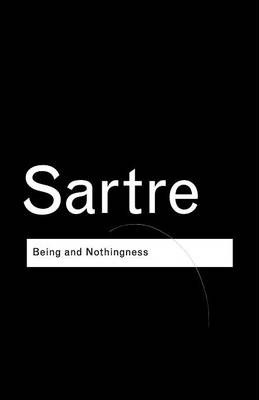
Sartre: Being and Nothingness
Merleu-Ponty: Phenomenology of Perception
Then let me mention the book by Daniel Stern. It is a while since I have last read it, but it was certainly an important influence on my own development.
Daniel Stern: The Interpersonal World of the Infant
Finally, for a more recent book, let me mention a book I co-edited a few years ago, and which gathers essays on the self from the perspectives of not only phenomenology and analytic philosophy, but also from the Indian traditions:
Siderits, Thompson and Zahavi: Self, No Self
ABOUT THE INTERVIEWER
Richard Marshallis still biding his time.
Buy his new book hereor his first book hereto keep him biding!